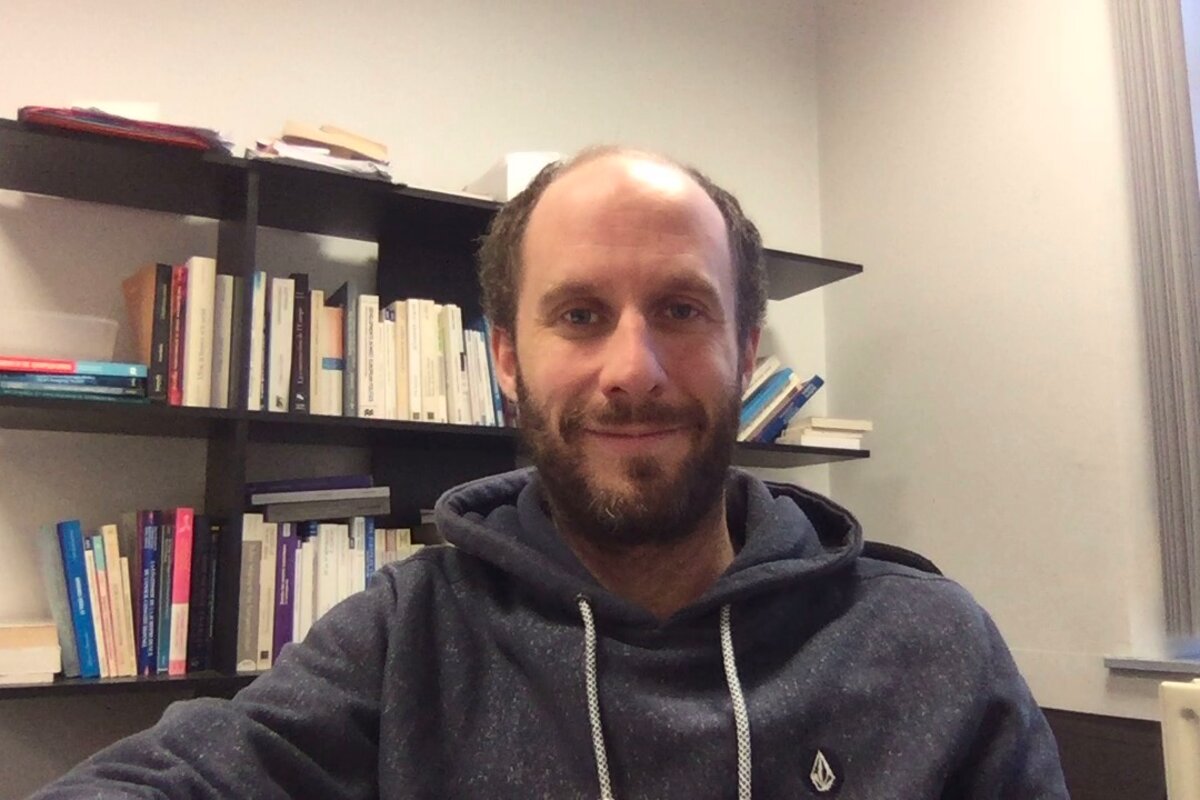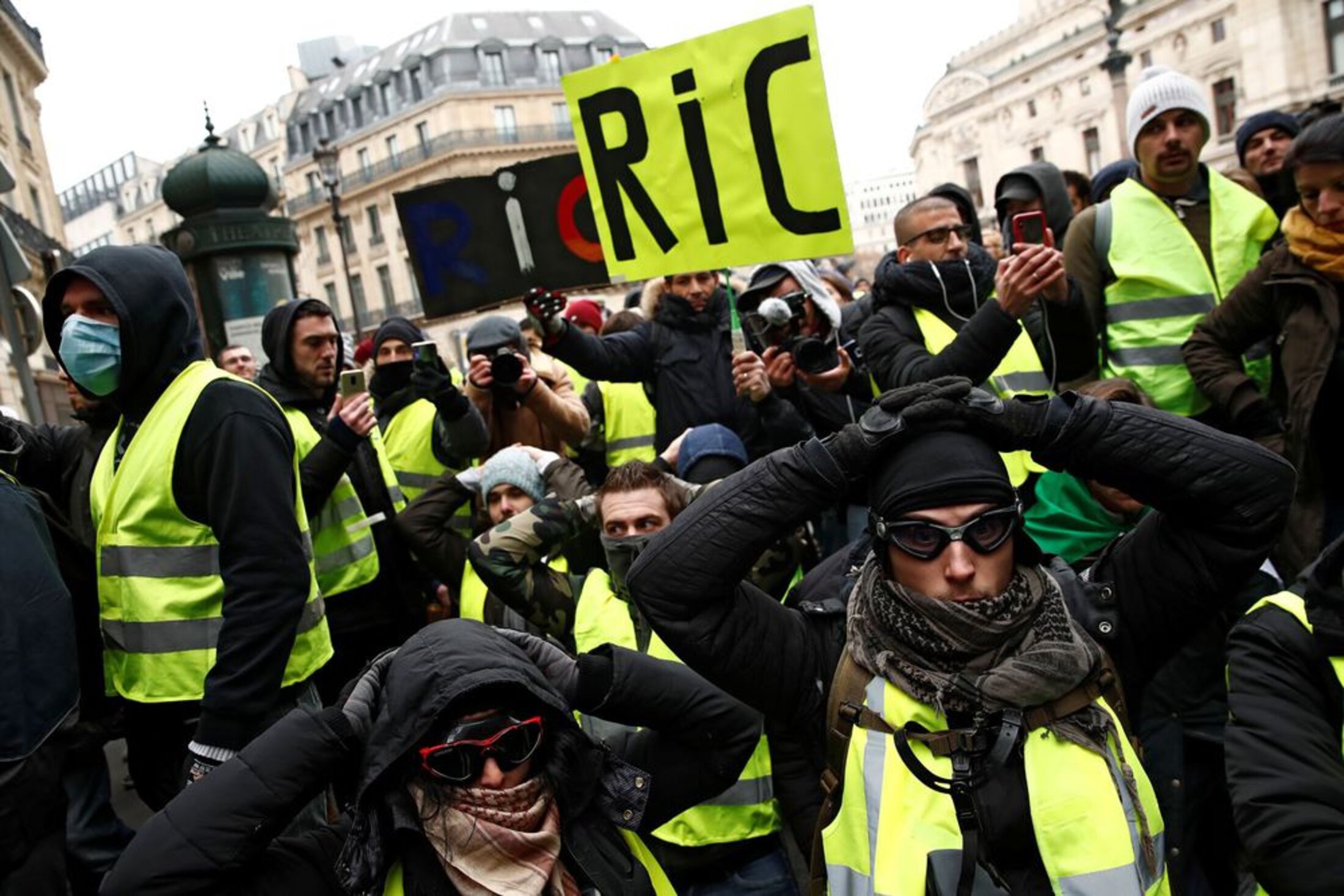The idea of “citizens initiatives” in which citizens get to choose what subjects are at the centre of public debate is gaining ground in the wake of the 'yellow vest' or 'gilet jaune' protests that have swept France in recent weeks. Mediapart interviewed academic Julien O'Miel, a lecturer in political science at Lille University in northern France and who has studied such initiatives at first hand, in particular in Italy, for his views on the issue.
For O'Miel, the yellow vest protestors' demands for direct democracy reveal the limits of representative democracy in a presidential regime. But they also show the limits of the participative democracy that is already practised in France and which has become standardised and ineffective at handling really contentious subjects.

Enlargement : Illustration 1

Mediapart: What has struck you the most about the 'yellow vest' movement?
Julien O'Miel: What has fascinated me, other than the fact that quite a proportion of the working classes have certainly taken action for the first time in their lives, is to have seen a banner calling for a “citizens initiative referendum” [editor's note, shortened to RIC in French] fluttering above the tear gas on the Champs-Élysées! I've never seen a social movement raise the issue of the democratisation of democracy so prominently. It's intriguing.
Mediapart: How do you explain the way that the demand for the democratisation of democracy emerged into the public debate so powerfully and so quickly?
J.OM.: First of all, for years the doors of the institutions have essentially been closed to the citizens. So in this movement there is thus a desire to make themselves heard at last. To do that the yellow vests want to force their representatives to discuss the issues that interest them but which have not been put on the political agenda. There is therefore a question mark over the definition of what is a public issue, which is why there's a call for a RIC [citizens initiative referendum].
You can then put forward the hypothesis that it is precisely because it is not a social movement that is following the traditional paths that it ends up with this demand in relation to democracy. Demands about the democratisation of democracy are usually made by political parties while demands about pay issues are made by the unions. Yet this movement was led by neither the parties or the unions, who in general call for sector-based marches before moving on to call for, in the well-known phrase, a “convergence of struggles”.
The yellow vests were united only by the wearing of these [hi vis] vests which conceal the internal social and political differences of the movement. The convergence of struggles was in fact there. This innovation in terms of form had an impact in terms of the content: it made it possible for unusual demands to emerge.
Mediapart: The appeal for the creation of a Sixth Republic [editor's note, the current political system in France is the Fifth Republic] was made during the last presidential election campaign [in 2017] and even before, in particular by the [radical-left] La France Insoumise ('Unbowed France') – could that have had an influence on the crystallization of these demands for institutional reform?
J.OM.: It's possible in the sense that the 'Insoumis' [editor's note, La France Insoumise supporters] were very involved in the movement and they could have instilled their ideas.
Mediapart: You work on the issue of participative democracy. Do you think that the RIC [citizens initiative referendum] is a useful tool?
It is an advance when you look at the concentration of power [in France], the weak role of Parliament, the presidentialisation of the institutions and the lack of processes for referendums or citizens initiatives that are within the grasp of French citizens.
The referendum mechanism has the advantage of being able to resolve “easily” a certain number of internal conflicts in a society. People respond with a “yes” or “no” to a question and the issue is decided. Today the majority of public issues are raised and then settled by the government. We see that in relation to the production of legislation, a large part of which is in the hands of the executive: the number of bills [editor's note, initiated by the government] are thus markedly greater than the number of legislative proposals [editor's note, initiated by Parliament] .
In addition, the National Assembly and the Senate [editor's note, the two chambers of the French Parliament] are not very representative of the social and cultural diversity of the French people. The principle of referendums can therefore be a good thing where it can show the gap between the political world and the rest of the population.

Enlargement : Illustration 2

Mediapart: Does the idea of a RIC [citizens initiative referendum] carry risks of its own in public debate? For example the risk of demagoguery?
J.OM.: Like any referendum it has limits: namely, who decides on the question? How is it formulated? In addition the referendum remains a voting process. If it seems like it mobilises more people, in reality it is always the same profile of people who vote. So in large part they reproduce the mechanics of regular elections. In Italy or Switzerland the rate of participation is thus far from 90% and the determining social factors of voting once again explain the motives for the abstentions! Referendums are also criticised for not allowing for “informed” collective discussions, which can indeed be the case.
Nonetheless, it seems to me that referendums act rather like “boosters” for collective deliberation. Look at what happened in 2005 [in France] at the time of the referendum on the Treaty for a European Constitution: debates broke out everywhere, there was a real passion to understand the Constitution and to take a political position on the issue. Was that an exception? To be honest there is an empirical hole in relation to this question: we have very little information which tells us the way in which referendums affect political behaviour. But what I see from my perspective, in my investigations, is that the measures which favour citizens initiatives allow more contentious issues to be introduced into debates than when they are decided on by a group of politicians.
Mediapart: Why?
J.OM.: What one calls “citizens initiative” measures, whether they are in the nature of a referendum or not, allow you to put on the agenda subjects which are not raised either by politicians or the media, it is they who prescribe what is a “public issue”. When you allow citizens to bring such and such an issue into the public arena, for example through a petition, that de-monopolises the political debate. In general citizens mobilise “against” a measure, yet with a citizens initiative they can mobilise in a positive manner. In bringing forward a cause which doesn't yet exist in the media and political domain or which is not formulated in the same manner.
Mediapart: You have studied exactly such a citizens initiative measure in Tuscany: in 2011 a group of citizens asked for a mosque to be opened in Florence and that led to a calm debate.
J.OM.: Yes and yet the issue of mosques in Italy is as contentious as the issue of the veil in France! In the case of Tuscany the context in which the debate was launched was interesting. Several years earlier the region had enacted a law linking two mechanisms whose combination seems particularly original in the world of participative democracy. On the one hand there was the creation of an independent authority on the model of the Commission Nationale du Débat Public (CNDP) in France, with a budget of a million euros at its disposal and, at its head, an expert who is outside of local politics. On the other there was a measure which permits a non-established group to raise an issue with local leaders, with a very low threshold to reach - 2,000 signatures for issues relating to Florence.
Afterwards it was a group that has been largely overlooked, some foreign Muslims who for the most part don't have Italian nationality, who collected signatures, organised a participative debate on the siting of a future mosque in Florence who, in short, made use of the process to make themselves heard. If it had been down to local councillors to decide on the appropriateness of a debate on the building of the mosque I can assure you that it would never have taken place, because it was far too contentious!
Mediapart: The Tuscan example was a success, but you also indicate that participative democracy is far from always being effective. Moreover, one can see that it's difficult to mobilise citizens during neighbourhood meetings in towns and cities or in participatory budgeting – a practice which gives people a say on how part of a local council budget is spent.
J.OM.: It's true, very few people take part in the apparatus of participative democracy, and those that do more or less always have the same profile – people who are quite well off, who are more elderly. Seen like that it can be said that there is no social demand for participation. But if you look at what happened at Notre-Dames-des-Landes [editor's note, where the occupation of a site in west France led to the abandonment of a new airport there] and Sivens [where protestors demonstrated against a new dam in south-west France] or today at the yellow vests, then you have to observe that there is a demand. A paradox? You can explain that by the fact that people want to take part in issues that closely affect them and which, in addition, bring with them real points of contention.
Mediapart: Meaning that...?
J.OM.: Elected representatives too often use participative democracy as an instrument of social acceptability. They ask the question: “Do you want this development like this or like that?” when the really fundamental question - “Do you want this development?” - is never asked. The participation is too defined from the start.
Mediapart: What is it that stops the emergence of this contentiousness?
J.OM.: There are three factors which stop participative democracy measures such as we know them from being effective and, more precisely, which stops the emergence of citizens initiatives. First, the irrational fear of elected representatives of losing control of the political agenda always leads them to regulate, even control what's brought to the debate. Often they justify that by attacking the fact that extreme right-wing themes could emerge.
Then, and this is a very important factor, participative democracy has become a market with consultants, experts, who produce a product and who need to sell it. They sell citizens juries, participatory budgeting … The result is that very few producers of participative democracy for local politics even put forward “subversive” measures because otherwise the elected representatives won't buy them! Finally, citizens initiatives are heard as long as they don't question neo-liberal policies. This is the red line: you can speak about anything except the economy.
Mediapart: Hasn't the very principle of participative democracy been corrupted by the system?
J.OM.: When participatory budgeting was first invented at Porto Alegre [editor's note, the Brazilian city where the practice started in 1989] there was real reflection given to the participation and the way in which it can serve social justice: for example, the more underprivileged your area, the more your voice counts etc. Today, look at Paris or Lille, participatory budgeting serves to prioritise projects but they don't think about who's going to take part.
Between Porto Alegre and Paris it's just the procedure that has kept going, not the original spirit! It is also revealing that no one speaks of a participative democracy “of the Left” or “of the Right”; participative democracy has become a technique and no one asks any more what fundamentally the point of it is.
---------------------------------------------------------------------------
- The French version of this interview can be found here.
English version by Michael Streeter


